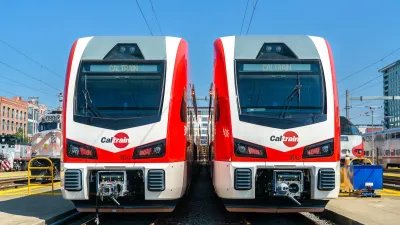In the aftermath of Typhoon Haiyan, the unequal impacts of climate change have become a focus of discussions at an international climate conference in Warsaw. The most vulnerable (often poor) nations are demanding compensation from developed ones.
"From the time a scientific consensus emerged that human activity was changing the climate, it has been understood that the nations that contributed least to the problem would be hurt the most," write Steven Lee Myers and Nicholas Kulish. "Now, even as the possible consequences of climate change have surged — from the typhoons that have raked the Philippines and India this year to the droughts in Africa, to rising sea levels that threaten to submerge entire island nations — no consensus has emerged over how to rectify what many call 'climate injustice.'”
"Growing demands to address the issue have become an emotionally charged flash point at negotiations here at the 19th conference of the United Nations Framework Convention on Climate Change, which continues this week."
FULL STORY: Growing Clamor About Inequities of Climate Crisis

Alabama: Trump Terminates Settlements for Black Communities Harmed By Raw Sewage
Trump deemed the landmark civil rights agreement “illegal DEI and environmental justice policy.”

Planetizen Federal Action Tracker
A weekly monitor of how Trump’s orders and actions are impacting planners and planning in America.

The 120 Year Old Tiny Home Villages That Sheltered San Francisco’s Earthquake Refugees
More than a century ago, San Francisco mobilized to house thousands of residents displaced by the 1906 earthquake. Could their strategy offer a model for the present?

In Both Crashes and Crime, Public Transportation is Far Safer than Driving
Contrary to popular assumptions, public transportation has far lower crash and crime rates than automobile travel. For safer communities, improve and encourage transit travel.

Report: Zoning Reforms Should Complement Nashville’s Ambitious Transit Plan
Without reform, restrictive zoning codes will limit the impact of the city’s planned transit expansion and could exclude some of the residents who depend on transit the most.

Judge Orders Release of Frozen IRA, IIJA Funding
The decision is a victory for environmental groups who charged that freezing funds for critical infrastructure and disaster response programs caused “real and irreparable harm” to communities.
Urban Design for Planners 1: Software Tools
This six-course series explores essential urban design concepts using open source software and equips planners with the tools they need to participate fully in the urban design process.
Planning for Universal Design
Learn the tools for implementing Universal Design in planning regulations.
Clanton & Associates, Inc.
Jessamine County Fiscal Court
Institute for Housing and Urban Development Studies (IHS)
City of Grandview
Harvard GSD Executive Education
Toledo-Lucas County Plan Commissions
Salt Lake City
NYU Wagner Graduate School of Public Service




























